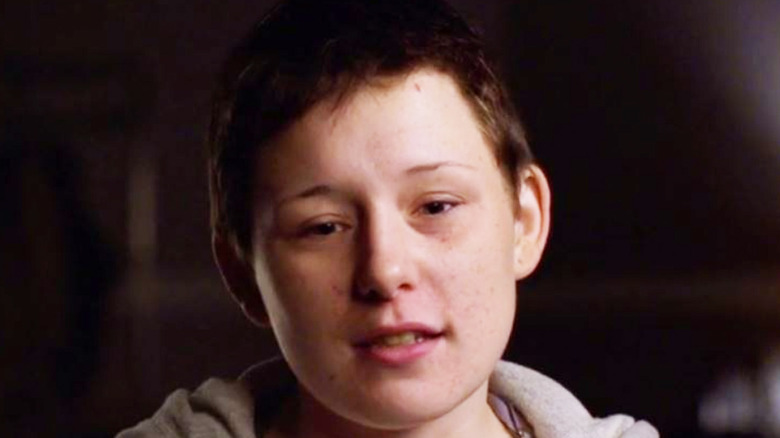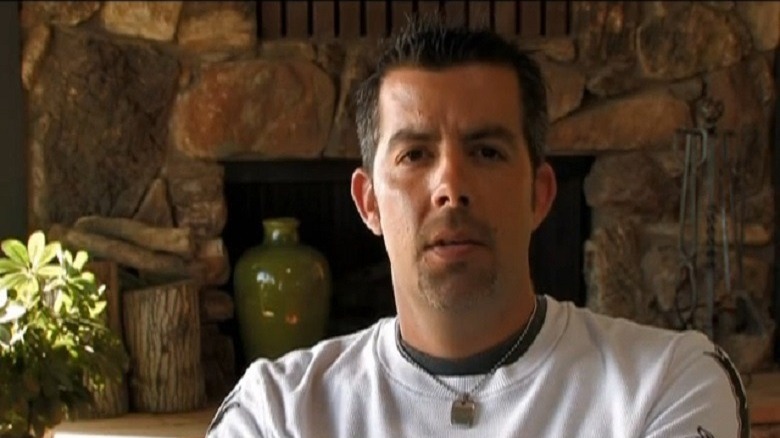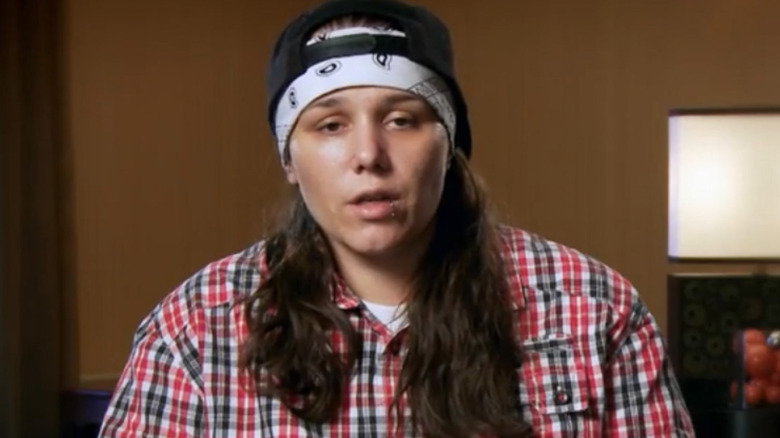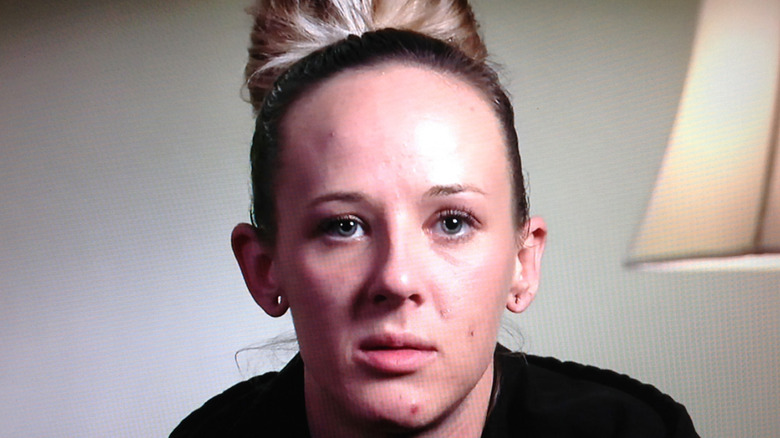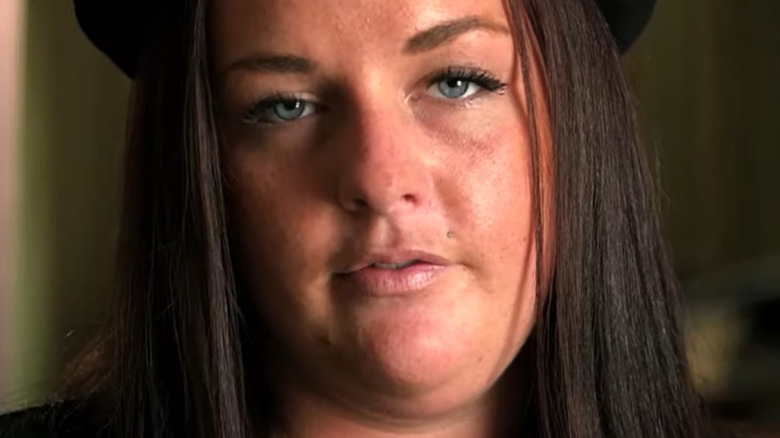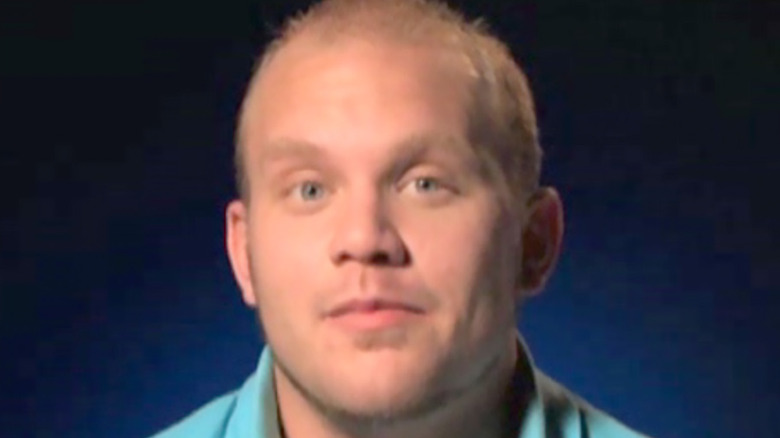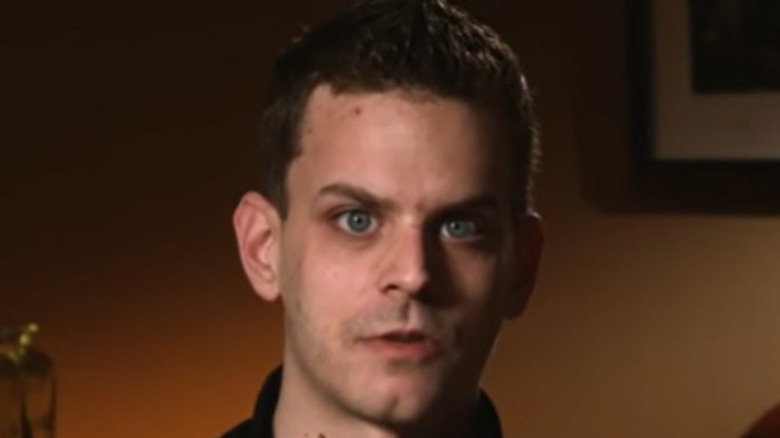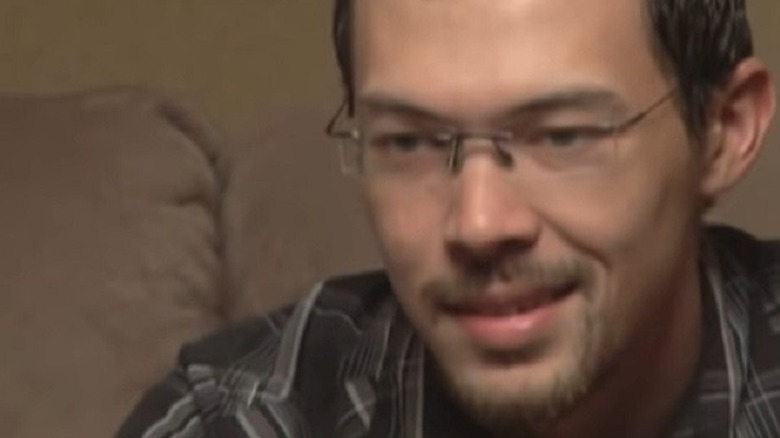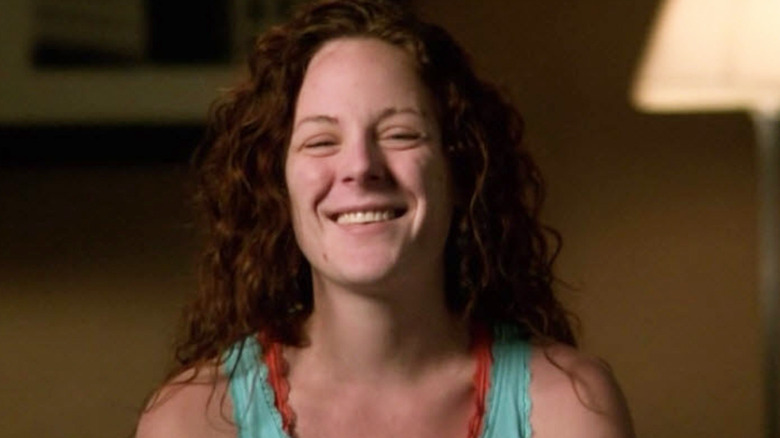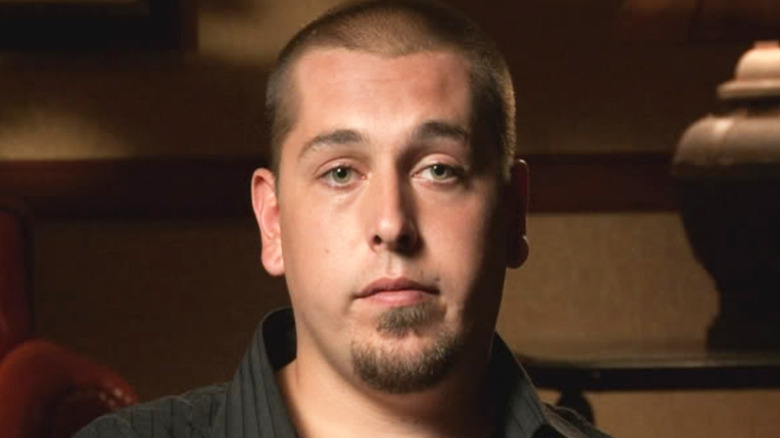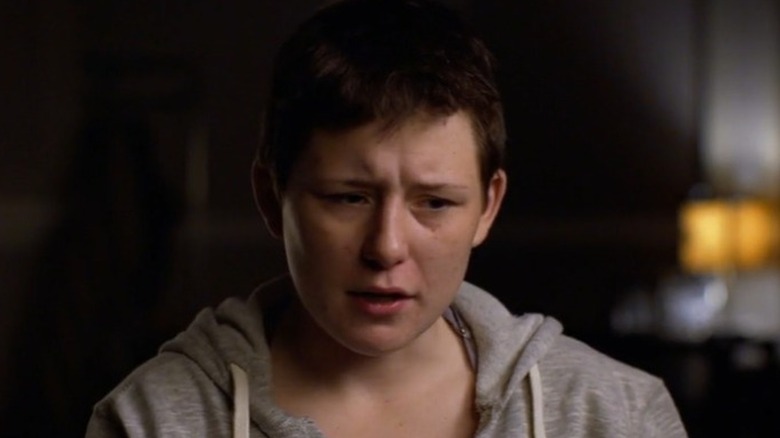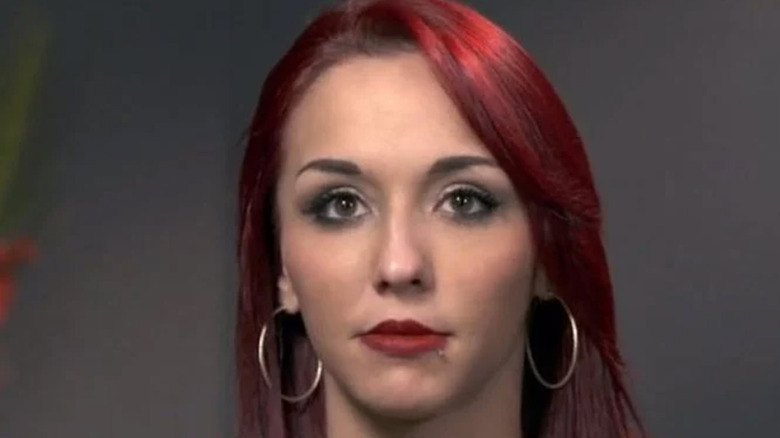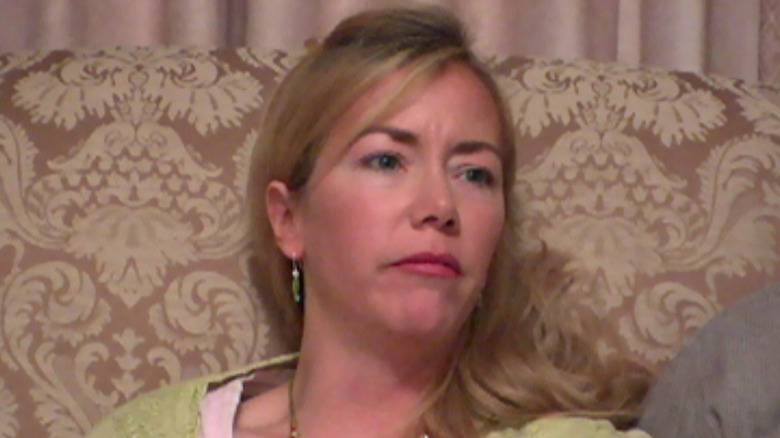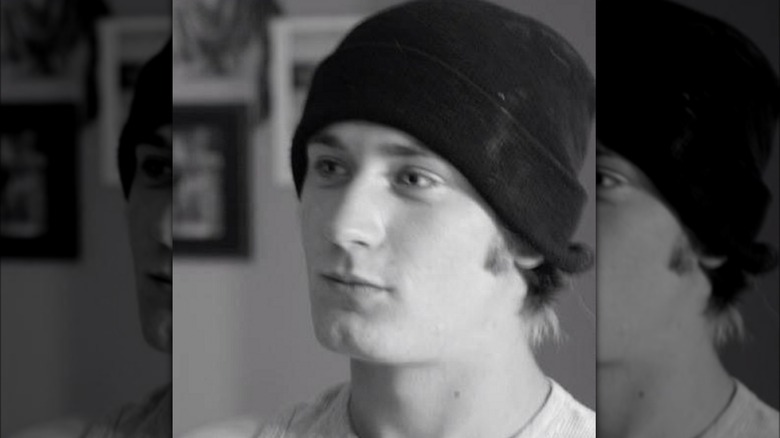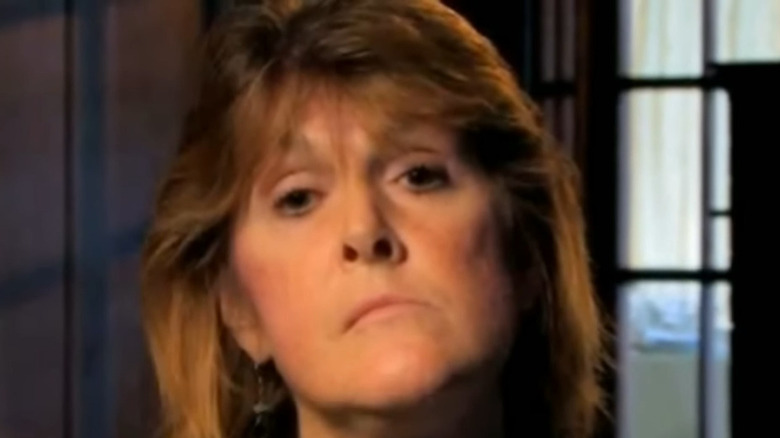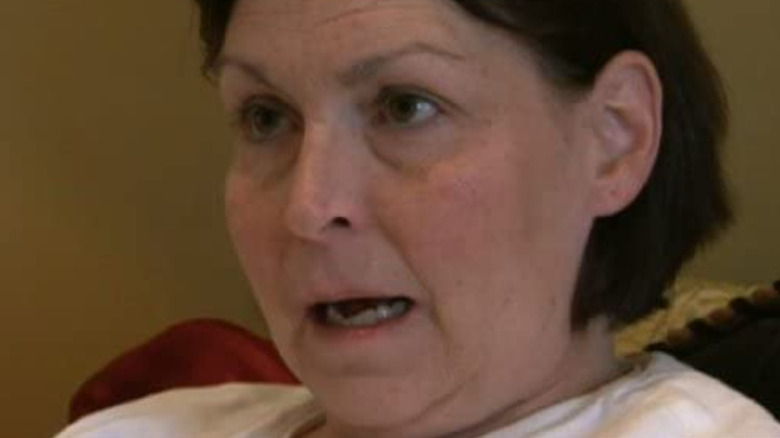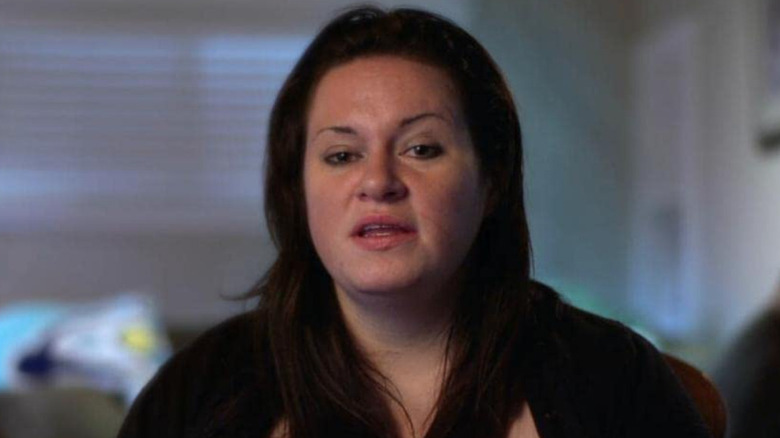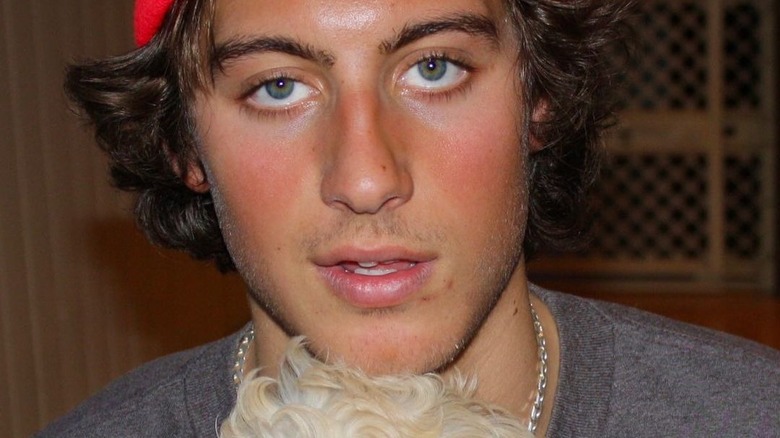Intervention Stars Who Sadly Died
The following article includes mentions of addiction, mental illness, domestic abuse, child abuse, sexual assault, and suicide.
"Intervention" documents the difficulties faced by those struggling with addiction or destructive behavior. At the end of each episode, the featured person is subject to an intervention — where their loved ones, with the help of a professional, attempt to persuade them to get treatment.
The show's been accused of being exploitative, and given the drama and chaos that may accompany addiction and mental illness, any kind of coverage is likely to cause controversy. And while on the whole, "Intervention" manages to balance documenting shocking circumstances with empathy and compassion, it's not without its detractors. The Philadelphia Inquirer, for example, reports that local addiction specialists accused the series of sensationalizing Philly's opioid epidemic.
There's no escaping the positives, though: "Intervention" educates viewers about addiction and mental illness, it provides treatment for people who often couldn't afford it themselves, and the results are impressive. As per The Daily Beast, "Intervention" boasts "a 71 percent success rate in rehabbing the most determined, hardened addicts." However, relapse — and even death — are not uncommon when it comes to recovery, as not everybody overcomes their so-called "demons." And if they do, sometimes they're hit by another, totally unrelated tragedy. Read on for stories of "Intervention" stars who sadly died.
If you or anyone you know is struggling with addiction issues, help is available. Visit the Substance Abuse and Mental Health Services Administration website or contact SAMHSA's National Helpline at 1-800-662-HELP (4357).
If you or someone you know is struggling with mental health, please contact the Crisis Text Line by texting HOME to 741741, call the National Alliance on Mental Illness helpline at 1-800-950-NAMI (6264), or visit the National Institute of Mental Health website.
Chris Brady
Chris Brady featured in Season 6 of "Intervention." The 34-year-old was in the full throes of alcoholism — barely able to function and incapable of holding down a job, the Delaware native would reach for a vodka bottle the moment he awoke to stop the tremors caused by alcohol withdrawal while he slept. Alcohol addiction wasn't Chris' only struggle though. Raised a devout Catholic, he'd battled with his sexuality while growing up. Chris came out as gay at 18, but his family was less than supportive. Their refusal to accept Shawn, his partner of 15 years, helped fuel Chris' hard drinking — and the more he drank, the angrier he became.
Chris' intervention resulted in him entering a California treatment center. "I just feel good about life in general," he said following 90 days of sobriety. "... I think there's nothing but hope for our relationship and our future," Chris added upon returning home to his partner. "It can only be better."
However, in August 2009, the reality TV star relapsed and, tragically, died by suicide. "His addiction was very, very powerful, unfortunately," Shawn told The Advocate. "... It was a vicious cycle that would always repeat." But he had refused to "give up" on Chris, no matter how bad things got. "He was my partner; I loved him, he was half of my life," Shawn said.
If you or anyone you know is having suicidal thoughts, please call the National Suicide Prevention Lifeline at 1-800-273-TALK (8255).
Karissa Hilts
Karissa Hilts' addiction to heroin was documented during Season 15 of "Intervention." Before discovering opiates, her passion had been cooking. She was so talented at it that her mom planned on her taking over the family diner one day. However, everything changed after Karissa was introduced to Oxycodone by a friend's mom when she was 13 (via CNY Central).
With a childhood that had been chaotic and violent, Karissa never dealt with the resulting trauma — so she seemed primed to fall "in love" with opiates, as she put it, given their ability to numb and suppress emotional pain equally as well as physical. To fund her ever-growing habit, Karissa started running drugs. Her life spiraled as her dependency deepened, and before long, she had developed a full-blown heroin addiction. Family and friends began to fear for her life, watching over her after she passed out, with a naloxone kit on hand, in case she'd accidentally overdosed.
Karissa's intervention ended with her entering treatment. But when she returned home, she started using again, resulting in a near-fatal overdose. "My poor mother found me like that," Karissa told CNY Central. A second stint in rehab proved successful, though, and she remained drug-free from February 2016 onwards. However, just 13 months later, Karissa was killed in an Orange County, Florida, hit-and-run incident. As per ClickOrlando, a 77-year-old man was subsequently charged "with failure to remain at the scene of a fatal crash." Karissa had maintained her sobriety right up until her death at age 29.
If you or someone you know may be the victim of child abuse, please contact the Childhelp National Child Abuse Hotline at 1-800-4-A-Child (1-800-422-4453) or contact their live chat services.
Brittany Christine Howard
Brittany Christine Howard's addiction battle aired during Season 15 of "Intervention." The 27-year-old from Derby, Kansas was dependent on both heroin and meth. As Brittany's addiction grew in strength, her life became increasingly chaotic and destructive, tearing her already fractured family apart as they struggled to deal with the fallout. Adding to the turmoil, Brittany's father, Leslie, was also using, and the two developed a damaging codependency as they partied together.
Having experienced a traumatic past, Brittany was subjected to rape and had also witnessed her parents' breakup and subsequent bitter divorce battle. She turned to drugs to help block out her emotional pain. During Brittany's intervention, Leslie agreed to enter treatment if it meant she would, too. In the end, they both headed for rehab — in separate facilities.
Leslie managed to maintain his sobriety, but sadly, his daughter relapsed just two days after leaving treatment. Brittany died of a heroin overdose on August 20, 2016. "Addiction has claimed yet another life. Brittany was a 27-year-old fun, outgoing and bubbly person. She was taken from us too soon," read the GoFundMe that was started to cover funeral expenses. Meanwhile, Leslie wrote on the PrimeTimer "Intervention" forum, "I miss her so much. She was a really really caring and loving person regardless of her addiction. ... I never want this to happen to another parent or anyone to lose a loved one in this manner. She was my oldest baby and I can't take anything back."
If you or anyone you know has been a victim of sexual assault, help is available. Visit the Rape, Abuse & Incest National Network website or contact RAINN's National Helpline at 1-800-656-HOPE (4673).
Vanessa Marquez
Vanessa Marquez's story ran in 2005 during the first season of "Intervention." She'd had been a successful actor with a recurring role on the hit drama "ER." However, her TV career ended once a shopping addiction and agoraphobia took over her life. Vanessa's spending became so out of control that she faced bankruptcy. Meanwhile, her agoraphobia had destroyed many of her relationships with friends and family, and Vanessa also battled depression and bipolar disorder.
Vanessa's intervention was one of just two in the show's history that didn't involve any family members. Instead, it was down to the few remaining friends she had left to urge her to seek treatment. However, Vanessa's mental state continued to deteriorate further over the next few years — along with her physical health. "She was imprisoned by her own illness," a friend told The Daily Beast. Vanessa would take to Facebook to write about her multiple disorders, which the outlet noted included "celiac disease, fibromyalgia, and increasingly debilitating seizures."
As per ABC7, on August 30, 2018, Vanessa's landlord requested a "welfare check" be carried out after becoming increasingly worried for her. When cops and a mental health professional arrived at the South Pasadena, California house, Vanessa suffered a seizure. She refused medical assistance, but talked with the cops for over an hour and a half. Then, suddenly, she reportedly "became combative" and began "waving a BB gun around." The cops, mistaking the weapon for a semi-automatic handgun, responded by fatally shooting Vanessa in the torso. She was 49 years old.
Lyndsay Devoe
Lyndsay Devoe's addiction battle was documented during Season 2 of the Canadian franchise of "Intervention." As per CTV News, the high school graduate was a talented dancer, who also struggled with an all-consuming addiction to opiates. Lyndsay had started taking drugs in her late teens, following the death of her father. According to TV Guide, a doctor had prescribed Oxycodone to help Lyndsay manage her anxiety. She quickly became "addicted, injecting more than 1000mg per day" of the drug.
"My tolerance, it's unheard of," Lyndsay admitted in the preview clip of her "Intervention" episode. "It's pretty scary the amount that she can do," her brother confirmed. As Lyndsay's family attempted to deal with her ever-increasingly powerful addiction, her sister worried that Lyndsay's drug habit would prove to be too much for their mother to handle. "She's going to die, and my mom has had so much stress," the 12-year-old said.
Lyndsay's intervention resulted in her agreeing to go to rehab. She soon relapsed, but over the years, Lyndsay continued attempting to get clean. "She went to 12 different centers in 10 or 11 years, so it was really hard for her to beat," her mom, Jenny, said (via CTV News). However, Lyndsay tragically died when she overdosed on heroin mixed with fentanyl in 2018.
Dillon Brewer
The third season of "Intervention" included the tragic story of Dillon Brewer. The 20-year-old's drug of choice was methamphetamine, and he was addicted to shooting it up every day. Growing up in Oklahoma, Dillon was a smart kid who was predicted to have a bright future ahead of him. However, a mix of circumstance and genetics would ultimately result in a much darker outcome. Dillon's father was a violent alcoholic. His mom, Tammy, eventually decided she couldn't tolerate her husband's abuse anymore. So, she left — taking Dillon with her.
Tammy channeled her energy into ensuring a happy life for Dillon. However, her hopes were dashed after he discovered meth. As Dillon's drug dependency grew, his behavior started changing. His never-ending need to score meth became his sole focus, and he seemingly stopped caring about anything else. Tammy's desperation to make her son happy appeared to make her ripe for manipulation. With Dillon exploiting this weak spot, their relationship soon turned toxic, and he moved in with his dad.
Dillon's intervention resulted in him entering rehab — but 31 days later, he quit. As per KOCO News 5, Dillon claimed, "The intervention saved my life." However, in November 2011, he died by suicide following a heated standoff with Grady County cops.
If you or someone you know is dealing with domestic abuse, you can call the National Domestic Violence Hotline at 1−800−799−7233. You can also find more information, resources, and support at their website.
If you or anyone you know is having suicidal thoughts, please call the National Suicide Prevention Lifeline at 1-800-273-TALK (8255).
Joe Spina
Joe Spina's story aired during Season 8 of "Intervention." The 24-year-old had been hiding a "deep dark secret" since his childhood. At 8, Joe was introduced to "the choking game," resulting in a self-asphyxiation addiction. "If I was having a rough time about something, I would do it to escape from everything. ... It totally took over," he admitted.
When Joe was born, his dad's "patience [had grown] kinda thin," and John was distant towards his youngest son. Adding to his sense of isolation, Joe was bullied and struggled to make friends. "Every day that I woke up, I felt immediately alone," he admitted. Joe discovered dope at 18, and explained, "The second I actually felt the effects of heroin, there was no place I would rather have been." Before long, Joe's habit was costing him over $200 a day. He started stealing from his parents, and after five failed rehab attempts, they threw Joe out and fired him from their business.
While the family refused to acknowledge addiction as being a disease, they eventually put their anger aside for an emotional intervention, and Joe entered treatment. He relapsed a year later and landed in jail. But by 2016, he'd maintained three and a half years of sobriety. Joe explained that he planned to "get into music and film" — he was excited about the future. However, in September 2018, Joe sadly died after suffering a severe brain injury.
Skyler Patrick Russell
Skyler Patrick Russell's addiction battle featured in Season 11 of "Intervention." The 24-year-old's issues stemmed from his childhood due to pressure from his mom, Tiffany, to be a teen star. That pressure led to Skyler seeking a form of escape, and he found it — in drugs. As per Reality Blurred, Skyler was booking commercials and modeling gigs at 13 years old. "I pushed him every direction ... and I pushed hard," Tiffany admitted when Skyler competed in Season 1 of "Endurance," the Disney Kids' version of "Survivor." He finished fifth, much to his mother's disappointment, and Skyler's grandma claimed Tiffany's stage mom demands played "a huge role" in her son turning to drugs. "For her, he just was never good enough," she said.
Skyler started smoking weed when he was 18, before moving on to bath salts at 23. The psychoactive street drug can induce psychosis, violent behavior, confusion, and paranoia (via Drugs.com). Skyler was snorting "up to 10 lines a day" over the course of seven months, and began suffering violent outbursts and paranoid delusions — hearing voices and battling imaginary "shadow people." His mental state deteriorated so severely that he had to be hospitalized four times in just six months.
An emotional intervention resulted in Skyler going to rehab, but sadly, he was diagnosed with schizoaffective disorder after detoxing. Following treatment, he continued to use bath salts and started drinking heavily. In October 2020, Skyler tragically died after suffering a brain infection and organ failure due to alcohol withdrawal.
Megan Wood
Megan Wood's story aired during Season 10 of "Intervention." The 27-year-old's childhood had been traumatic. Her parents divorced when she was 3 and her mom, Laurie, remarried. Megan's stepfather abused her emotionally and physically, but Laurie admittedly chose to "try to keep it together" rather than go through another divorce. After Megan left home, though, Laurie became the target of his rage, and she quickly filed for divorce. Megan's anger over her mom's refusal to protect her was all-consuming. "It was on the heels of that, that my drug use absolutely exploded," she admitted.
During her first week of college, Megan started by taking mushrooms. "I felt like I could just breathe. I felt free," she explained. Megan graduated to shooting up cocaine and heroin, in addition to popping Xanax, Oxycodone, and Dilaudid. She turned to sex work to help fund her $120 a day habit. "I'm just going to continue to get higher and higher and higher until I kill myself," Megan vowed.
Megan's intervention resulted in her going to rehab. "I feel good, I feel really good," she said after two months of treatment. Megan acknowledged she needed to let go of her "resentment" towards Laurie. She wanted to get her Ph.D. and "live a normal life." After leaving rehab, she moved to North Carolina to continue working on her sobriety. However, as per The Journal Times, Megan died in February 2014 after overdosing on heroin.
If you or someone you know may be the victim of child abuse, please contact the Childhelp National Child Abuse Hotline at 1-800-4-A-Child (1-800-422-4453) or contact their live chat services.
If you or someone you know is dealing with domestic abuse, you can call the National Domestic Violence Hotline at 1−800−799−7233. You can also find more information, resources, and support at their website.
Austin A. Powers
In 2010, Season 9 of "Intervention" featured the story of Austin A. Powers. The 23-year-old was battling alcoholism, and it was destroying his life and affecting his friends and family. Austin was no stranger to the devastating impacts of alcohol abuse. His stepfather had been an alcoholic, and it was following his death that Austin had started drinking himself to try and deal with the painful loss.
Austin's life was spiraling out of control, and his loved ones were desperate to stop his self-destructive behavior and break the cycle before it was too late. But Austin refused these attempts at help. The situation had become even direr after his girlfriend became pregnant, and Austin was determined to pack as much partying in as possible prior to the arrival of his new baby. However, his family worried that at the rate Austin was going, he would die before he got the chance to become a dad.
Austin entered rehab following his intervention. He refused to acknowledge the extent of his addiction, though, and quit treatment after two months, declaring himself sober. As per The Loveland Reporter-Herald, in November 2011, cops were called to an apartment in Fort Collins, Colorado after a man reported finding his roommate "unresponsive." The roommate was Austin A. Powers — he'd died from a heroin overdose at age 24.
Ashley Dorothy Ellen King
Ashley Dorothy Ellen King's story aired during Season 17 of "Intervention." Growing up, Ashley was a third-degree black belt Taekwondo champion, training to compete on the international circuit. However, she was forced to hang up her belt — and dreams — after drugs took hold.
Ashley was molested as a young child, but she'd never addressed the trauma it caused. Instead, she channeled her energy into sports. However, by the time she reached 15, Ashley's childhood demons refused to be silenced any longer, and she turned to drugs to numb the emotional pain. Ashley developed an addiction to smoking crack and shooting up opioids, and her life became increasingly chaotic. Ashley was in a co-dependent relationship with her girlfriend, Kaitlin. They partied hard and fought, and their behavior became so destructive that it resulted in them getting evicted from their apartment. Not surprisingly, Ashley's family was terrified they'd lose their daughter forever.
Her intervention was seemingly successful. "Yeah, I can do this," Ashley vowed on her way to rehab. Kaitlin also entered treatment, but was kicked out after a week. Ashley lasted 14 days before being "discharged for misconduct." She moved to another facility, but was discharged from there, too — after seven days. The couple subsequently split. In July 2021, Ashley, 25, was killed in a car accident — she'd been sober at the time. Ashley's obituary includes one of her favorite quotes, "Promise me, you'll think of me every time you look up in the sky and see a star."
If you or someone you know may be the victim of child abuse, please contact the Childhelp National Child Abuse Hotline at 1-800-4-A-Child (1-800-422-4453) or contact their live chat services.
Taylor Nichole Bittler
In 2017, the U.S. opioid epidemic was declared a national public health emergency. A mainly white, conservative, and middle-class Atlanta suburb 25 miles north of the city had been flooded by opioids. Heroin use had skyrocketed by 300%, resulting in the area being dubbed "The Heroin Triangle." The community refused to acknowledge the problem, though, believing that affluence, religious devotion, and (presumably) skin color made them somehow immune from supposed "inner city" plights. However, that started changing as more and more kids began fatally overdosing.
"Intervention" brought together a team of experts — and a camera crew — to film a nine-chapter special. Taylor Nichole Bitter was one of several featured in "Intervention: The Heroin Triangle." "The first time I tried heroin ... it was like all my problems had just washed right down the drain," Taylor explained. She worked as an exotic dancer to finance her "gram-a-day" habit. Her mom, Katherine, admitted to being "in a constant state of fear" about her daughter.
Taylor walked out of her intervention. "I want to be left alone," she pleaded, before ultimately returning to the room again. Despite strongly resisting at first, Taylor eventually agreed to rehab. "I feel such a sense of hope," Katherine admitted. "A weight has been lifted." Taylor returned home after treatment, and said, "I never thought I would feel emotions again. I never thought I would feel like the old me again." However, in January 2018, Taylor sadly died from acute asthmatic asphyxiation.
Betsy Anne 'Bets' Bender Johnson
Betsy Anne "Bets" Bender Johnson's story was documented in Season 2 of "Intervention." As per Lasting Tributes, Betsy attended Penn State University before becoming a teacher. She was also an artist and jewelry designer. However, Betsy started leaning on alcohol after her marriage ended, becoming addicted and barely able to function without it. Betsy's drink of choice was wine, but if that ran dry, she'd turn to any alternative available.
Betsy's alcoholism resulted in all of her emotional pain turning into anger whenever she drank. She steadfastly refused to acknowledge the depth of her addiction, though, or how destructive her behavior had become. Betsy pushed away everyone close to her, aside from her boyfriend, Andrew — who claimed to be sober but, in reality, didn't appear to be. The couple's relationship became codependent and toxic, with Andrew seemingly enabling Betsy and even attempting to talk her out of getting help. Her family eventually stepped in and issued an ultimatum — go to rehab or lose them forever.
Betsy's intervention was successful. She agreed to enter rehab, but insisted that Andrew accompany her on the flight there. Perhaps because he was desperate to just get her into treatment, Jeff VanVonderen, who managed the intervention, uncharacteristically gave in to the demand. Once Betsy completed treatment and had fully sobered up, she ended her relationship with Andrew and focused on her dogs instead. However, in August 2018, Betsy sadly died of breast cancer complications.
Ben Lowe
Ben Lowe's story featured in Season 4 of "Intervention," and it was truly tragic. The 25-year-old was a bona fide genius, with an IQ of 170. But Ben was addicted to Dextromethorphan — a cough medication commonly known as DMX. According to The DEA, DMX can cause liver damage, heart deterioration, delirium, hallucinations, and seizures when abused. When taken in large enough doses, it can result in death.
Ben's childhood had been incredibly dysfunctional. He'd suffered domestic violence, emotional abuse, isolation, and homelessness, and started using DMX in high school to help numb his feelings. As his addiction deepened, Ben began stealing and begging to fund his habit. At 19, he turned to sex work, developing an unhealthy, ongoing "relationship" with an older client. Ben's mom, Randi, grew increasingly desperate as she watched her son spiraling deeper into psychosis, fearing he would die if he didn't get help for his addiction.
Ben's intervention resulted in him entering rehab. However, after leaving treatment, he returned home and quickly relapsed. Randi refused to let Ben live with her while he continued to use — so he was forced to bunk at a friend's place. He died from an overdose in December 2016 at age 35. "Ben was public in regard to his personal demons and struggles," his obituary read. "He believed strongly in the value of knowledge, truth and the ability of people to form ways to face challenges together and overcome what rips them apart."
If you or someone you know may be the victim of child abuse, please contact the Childhelp National Child Abuse Hotline at 1-800-4-A-Child (1-800-422-4453) or contact their live chat services.
If you or someone you know is dealing with domestic abuse, you can call the National Domestic Violence Hotline at 1−800−799−7233. You can also find more information, resources, and support at their website.
Charles Weimer
Charles Weimer was the subject of an "Intervention" episode in the fourth season. The young man was 24 years old at the time and showed real promise as a motocross rider, but struggled with his addictions to heroin and alcohol due to an incredibly difficult childhood. His father, who had been convicted of sexually abusing Weimer and his younger brother, went to jail when the young boy was only 7. He was also a witness to his mother's alcoholism and quickly turned to substance abuse himself to try and forget the pain of his past.
As his sister Lindsey announced on Facebook, he tragically died in 2014 after years of living on the streets. "Not a day goes by that I don't think about him and all the others that are homeless and struggling with their own demons," she wrote, describing Charles as "a very loving, caring, and giving person" who never stopped trying to overcome his own childhood trauma and get sober. "He would light up a room wherever he went," Lindsey added, describing how she had managed to stay in touch with him and meet up for lunches together since the show aired in 2008.
If you or someone you know may be the victim of child abuse, please contact the Childhelp National Child Abuse Hotline at 1-800-4-A-Child (1-800-422-4453) or contact their live chat services.
Sandy Saunders
One episode of the fifth season of "Intervention" followed Sandy Saunders, a mother of four who had been struggling with prescription pills and vodka. Her daughters had been particularly worried about Saunders ever since her husband, a former alcoholic, had quit his substance abuse and left her behind in the house that they had built together. The show also covered how these addictions had impacted her body over the years, since she was already dealing with diabetes.
According to Distractify, Saunders completed her treatment and managed to get sober, but tragically died less than a year later in 2011 from diabetic ketoacidosis. "No matter how many obstacles came her way, she never stopped fighting," her family wrote in her obituary, describing Saunders as a resilient woman who had previously worked as a waitress, hostess, bank teller, and home health aide throughout her life. "She lit up around children and her greatest joy and primary focus was her family. She was a loving and devoted mother, grandmother, sister and aunt, whose sense of humor will be greatly missed."
Her surviving family included her four daughters (Allea, Brieana, Karalee, and Mariah) as well as her siblings and her beloved grandchildren.
Jackie Wooten
Alcohol can make a person's life completely unrecognizable in the space of only a few years, no matter how outwardly happy that person seemed beforehand. Jackie Wooten appeared in the seventh series of "Intervention" as a woman who had once been known as "the prettiest girl in town" and had been married with children in a comfortable position. But she turned to alcohol to cope with the memories of losing her father at age 13, as well as to numb the pain of her own divorce and miscarriage. Wooten tried rehab repeatedly for the sake of her family but sadly died in 2013 at Rowan Regional Medical Center at only age 55.
As her obituary notes, Wooten had a wide range of hobbies beyond her job as a radiation therapist and was very involved in her church. "Jackie was an excellent cook, enjoyed her book club and canasta group," her family wrote, adding that she was also a substitute teacher at her daughter Anna's school and always looked out for her loved ones. "She also loved spending time with all the little ones of her family," they continued. She was survived by her daughter, her father, and her siblings.
John Carstens
John Carstens appeared on "Intervention" in 2009 because his parents were seriously worried about his health. Although the young man had type one diabetes, he seemed to be in denial about his condition and neglected to keep track of his blood sugar or insulin at all. This reckless approach to his food led to some brushes with death, and he had previously ended up in the hospital on multiple occasions. The show also demonstrated concerns about his social life outside of the family home and how he found it difficult to build a community.
Sadly, Carstens was only 27 when he died in 2014. As his obituary noted, the Arizona native had shown real academic promise while pursuing his Biomedical Technology Degree at Brown Mackie, where he received the Distinguished Student Award and graduated magna cum laude. "John was an inspiration. Insightful, loving, caring and a true gentleman ... a diamond," his family wrote, paying tribute to Carstens and his altruistic character. "Those who knew him were lucky to have found him. A good man, with great integrity, John was devoted to helping others." The mourners at his memorial service included the members of his family who survived him: his parents, grandparents, aunts, and uncles.
Elann Christine Masters
Elann Christine Masters and her family tried to deal with her alcoholism in an episode of "Intervention," but it tragically came too late for the young woman who ultimately walked out of a treatment center and died by suicide in 2019 at age 30.
As her mother Tracy Masters told the Campbell River Mirror, their family had already faced loss when Elann first started struggling with her mental health and coping with alcohol. Elann's father had died by suicide in 2006, and her oldest brother had an untimely brain aneurysm that killed him in 2010 at age 25. The young woman found it incredibly difficult to overcome her grief but had tried to recover from her addictions for the sake of her mother. "She almost had a year completely clean, she went to the gym every day, she was like a total 180, completely different person," Tracy recalled.
When she relapsed, however, it soon led to tragedy. "It kills me as a parent that she died alone in a hotel room," her mother admitted. In order to prevent other people from ending up the same way, Tracy set up a local charity in honor of Elann called Masters of Hope, which helps people navigate their mental health problems. "We want to put the word out there," her sister Kristy insisted. "We've got to open up this can of worms."
If you or anyone you know is having suicidal thoughts, please call the National Suicide Prevention Lifeline by dialing 988 or by calling 1-800-273-TALK (8255).
Conrad Dubois
When Conrad Dubois died of an overdose in 2019, his family turned his artwork into a fundraiser for youth mental health and addiction support.
As seen on "Intervention," Dubois faced an overwhelming dependence on oxycontin, due to mental health struggles that he had experienced since he was very young. But he was also a talented athlete and artist: as his obituary notes, he "excelled at snowboarding, wakeboarding, drumming, and drawing." And while his family found his addictions challenging, they were also close. "Conrad was a complicated human," his mother Shari Dubois told the Huntsville Doppler, explaining that she never gave up on her son and his fight to get sober. "I loved him with all my heart and just wanted him to be happy. Some days were fun, interesting, and exciting, and others were unbearably difficult."
So one year after he died, Shari planned a reunion for his closest loved ones and printed out T-shirts with one of his drawings, a colorful bear, emblazoned on the front. The design started getting attention on social media, and the Dubois family decided to start selling the shirts online to raise money for Mind-Aid, a charity that helps young people like Conrad deal with the mental health system. They quickly made over $15,000 by selling more than 1,500 "Coco Bear" merchandise items around the world. "The community support has been amazing," Shari stated. "Luckily most people love Conrad's artwork and then they find out that we are supporting a great cause."

